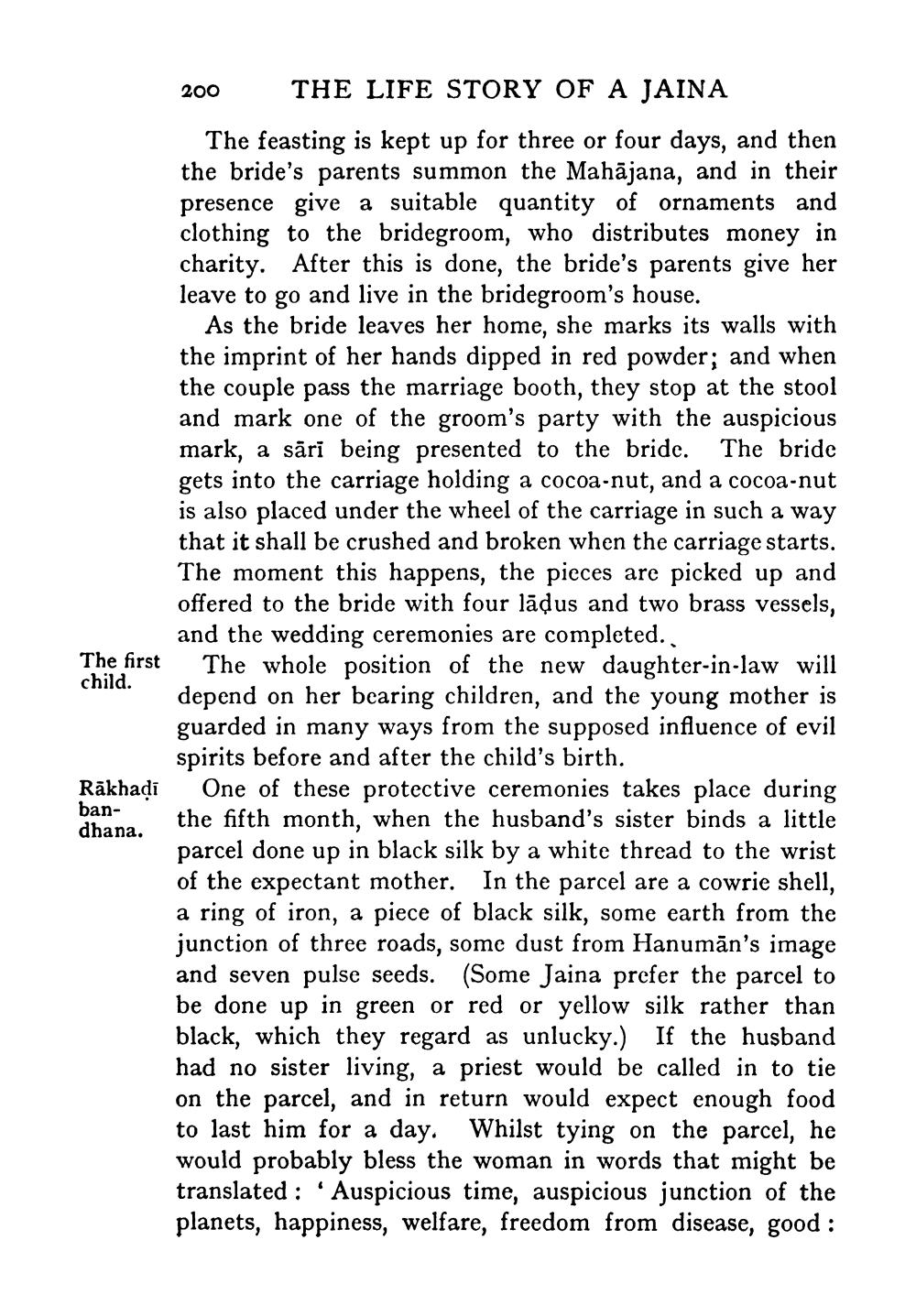________________
200 THE LIFE STORY OF A JAINA
The feasting is kept up for three or four days, and then the bride's parents summon the Mahājana, and in their presence give a suitable quantity of ornaments and clothing to the bridegroom, who distributes money in charity. After this is done, the bride's parents give her leave to go and live in the bridegroom's house.
As the bride leaves her home, she marks its walls with the imprint of her hands dipped in red powder; and when the couple pass the marriage booth, they stop at the stool and mark one of the groom's party with the auspicious mark, a sārī being presented to the bride. The bride gets into the carriage holding a cocoa-nut, and a cocoa-nut is also placed under the wheel of the carriage in such a way that it shall be crushed and broken when the carriage starts. The moment this happens, the pieces are picked up and offered to the bride with four lādus and two brass vessels,
and the wedding ceremonies are completed. The first The whole position of the new daughter-in-law will child.
depend on her bearing children, and the young mother is guarded in many ways from the supposed influence of evil
spirits before and after the child's birth. Rākhadi One of these protective ceremonies takes place during ban
the fifth month, when the husband's sister binds a little parcel done up in black silk by a white thread to the wrist of the expectant mother. In the parcel are a cowrie shell, a ring of iron, a piece of black silk, some earth from the junction of three roads, some dust from Hanumān's image and seven pulse seeds. (Some Jaina prefer the parcel to be done up in green or red or yellow silk rather than black, which they regard as unlucky.) If the husband had no sister living, a priest would be called in to tie on the parcel, and in return would expect enough food to last him for a day. Whilst tying on the parcel, he would probably bless the woman in words that might be translated : ‘Auspicious time, auspicious junction of the planets, happiness, welfare, freedom from disease, good :
dhana.




